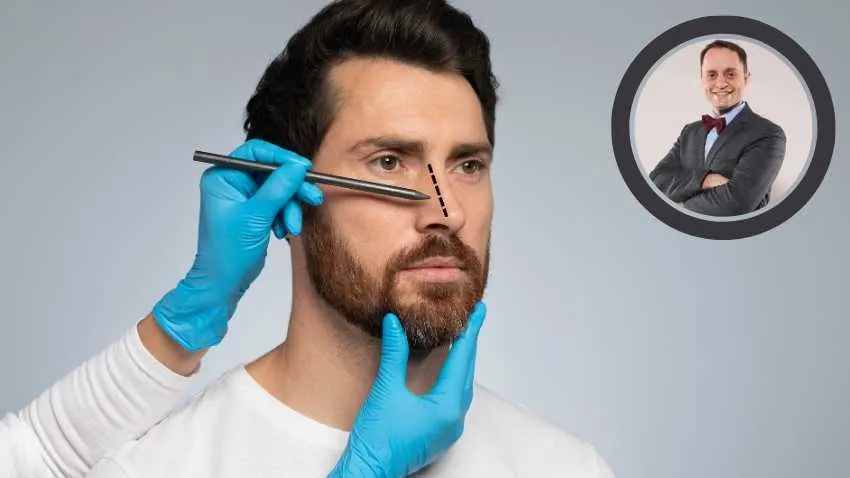
- Email: [email protected]
- Phone: +90 532 760 46 18

How Do I Know if I Have Thin or Thick Skin? You can understand the thickness of your nose skin with these methods
- 8 September, 2023
Many people who are considering having a rhinoplasty and doing research on this subject encounter the information that "the skin of the nose can affect the result". The details of this confusing issue, Otorhinolaryngology and Head and Neck Surgeon Op. Dr Volkan Kahya explained: "The general request of many people considering rhinoplasty is that the new nose to be made is smaller, elegant and natural looking than before.
Some people want to have a very small, unnatural, cool nose. In order to fulfil these wishes; In addition to the surgical techniques applied and the experience of the surgeon, the size, shape and skin thickness of the nose have an important place. The size and shape of the nose can be corrected to a certain extent. Unfortunately, the skin of the nose cannot be intervened much. Especially noses with very thick and very thin skin pose a problem to achieve the desired result."
IS YOUR SKIN OILY AND FULL OF CLOGGED PORES?
So how can you tell if the nasal skin is thick or thin? Op. Dr Volkan Kahya says that the skin gives some clues in this regard: "For example, if your skin is very oily and has many clogged pores, your nasal skin is likely to be thick. In addition, if the pores on your skin are very prominent, even resembling an orange peel, it can be said that you have a very thick skin.
If you feel another layer under the skin when you gently hold your nasal skin with your index finger and thumb from the top and your hand feels oily, this indicates that your skin is thick. Finally, if the wings of the nose look fleshy and round, thick skin can be mentioned. Such skin can be thinned to some extent with medical treatments and laser treatments. However, it is a little more difficult for patients with thin and normal skin to achieve the desired results."
VERY THIN SKIN IS ALSO PROBLEMATIC
Stating that the new shape appears a little later after surgery in the thick-skinned nose, Op. Dr. Volkan Kahya said, "In thick-skinned people, the nose lines are rounder and the dimensions are slightly larger than thin-skinned patients. Oedema goes down within 1-2 years, "he says. Dr Kahya also says the following for very thin-skinned noses: "Since there is no fat layer in patients with very thin skin, bone and cartilage irregularities that may occur during surgery may become evident afterwards. And this may disturb the patient."
BE SURE TO TALK TO THE DOCTOR
Op. Dr. Volkan Kahya underlines that regardless of the thickness of the skin, the patient and the surgeon should definitely talk about this issue before surgery: "Whether the nasal skin is thick or thin, the person who is considering having aesthetics should definitely discuss this issue and the result that can be obtained very well with his physician and reach an agreement. Otherwise, he may encounter unwanted results after surgery."

